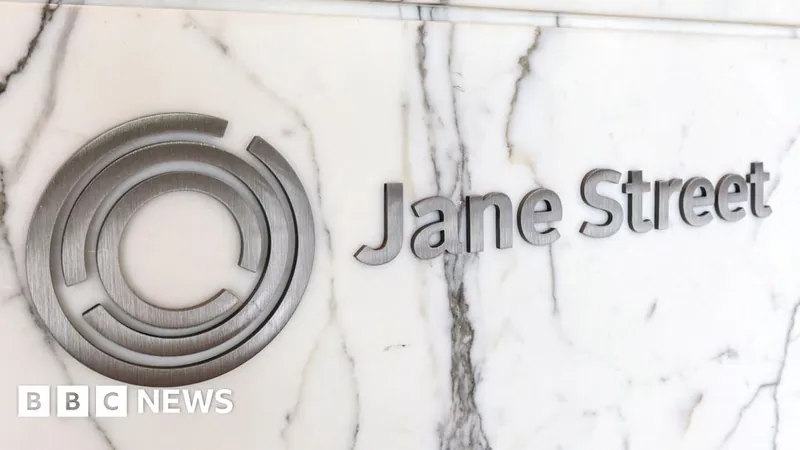
Jane Street's Trading Troubles: What You Need to Know!
2025-07-17
Author: Wei
Jane Street: A Trading Giant in Hot Water
In a shocking turn of events, Jane Street, the New York-based trading titan, is facing serious allegations from India's market regulator, Sebi. The firm, famous for its quantitative trading strategies, has been banned from operating in Indian securities markets amid accusations of market manipulation.
The Allegations: What's Going On?
According to Sebi, Jane Street has engaged in a "sinister scheme," creating deceptive price movements that misled small investors into trading at unfavorable rates. This manipulation allegedly revolves around the Indian Bank Nifty index, which tracks several major banks.
The regulator's accusations detail a strategy where Jane Street supposedly bought large quantities of bank shares, driving up their prices, while simultaneously hedging against a decline in the derivatives market.
As trading wrapped up on contract expiry days, Jane Street’s alleged offloading of shares led to a plunge in prices, benefiting their derivative bets while leaving individual investors with hefty losses.
The Financial Fallout: Who's Suffering?
Statistics reveal a staggering reality: nearly 10 million retail investors in India's derivatives market faced a cumulative loss of $11.6 billion in the last financial year alone. Sebi now claims Jane Street reaped $4.3 billion from Indian markets in just over two years, coinciding with these significant losses suffered by ordinary traders.
One disgruntled investor lamented, "On the day Jane Street had its most profitable trade, I lost almost $7,000—my worst single-day loss this year. It feels like they rigged the system for their benefit!"
What’s Next for Jane Street?
The trading firm has strongly denied Sebi's allegations, describing the trades in question as "basic index arbitrage"—a common trading strategy. They intend to challenge the regulator’s order, insisting their actions did not constitute manipulation.
However, market experts are raising eyebrows. Deepak Shenoy, CEO of Capitalmind, argues that while index arbitrage is legal, Jane Street's actions signify a more problematic strategy that strays far from ethical trading protocols.
Regulatory Concerns: A Call for Change?
This unfolding situation highlights critical gaps in regulatory oversight. With significant losses among retail investors, industry voices are calling for stronger surveillance tools to detect and prevent market manipulation in real-time.
As this saga continues, the ripple effects on both the domestic and global markets remain to be seen. Will Jane Street successfully defend its practices, or will this be a wake-up call for more significant regulatory reforms in trading?



 Brasil (PT)
Brasil (PT)
 Canada (EN)
Canada (EN)
 Chile (ES)
Chile (ES)
 Česko (CS)
Česko (CS)
 대한민국 (KO)
대한민국 (KO)
 España (ES)
España (ES)
 France (FR)
France (FR)
 Hong Kong (EN)
Hong Kong (EN)
 Italia (IT)
Italia (IT)
 日本 (JA)
日本 (JA)
 Magyarország (HU)
Magyarország (HU)
 Norge (NO)
Norge (NO)
 Polska (PL)
Polska (PL)
 Schweiz (DE)
Schweiz (DE)
 Singapore (EN)
Singapore (EN)
 Sverige (SV)
Sverige (SV)
 Suomi (FI)
Suomi (FI)
 Türkiye (TR)
Türkiye (TR)
 الإمارات العربية المتحدة (AR)
الإمارات العربية المتحدة (AR)